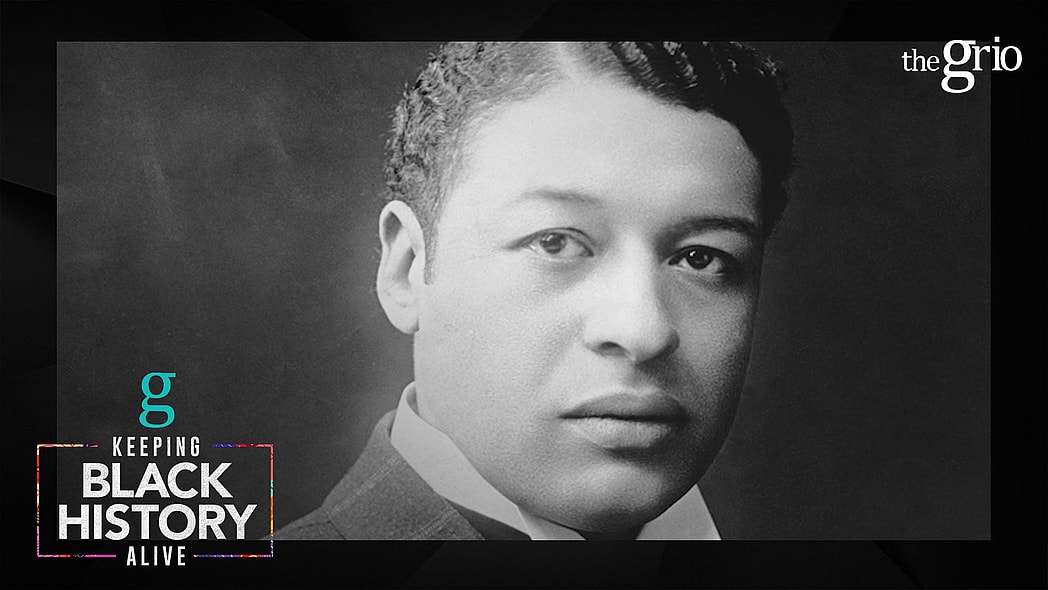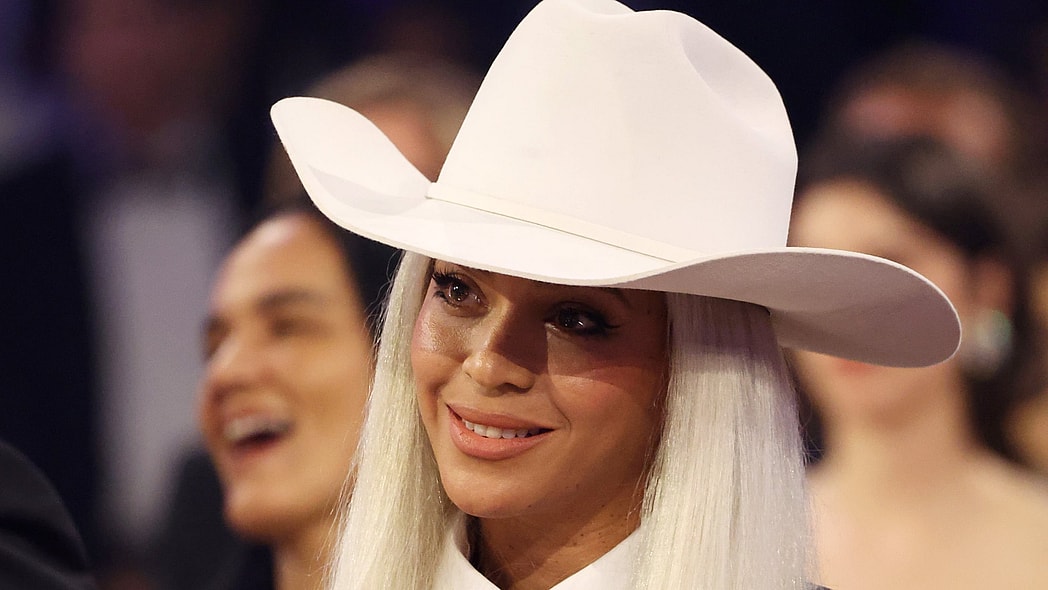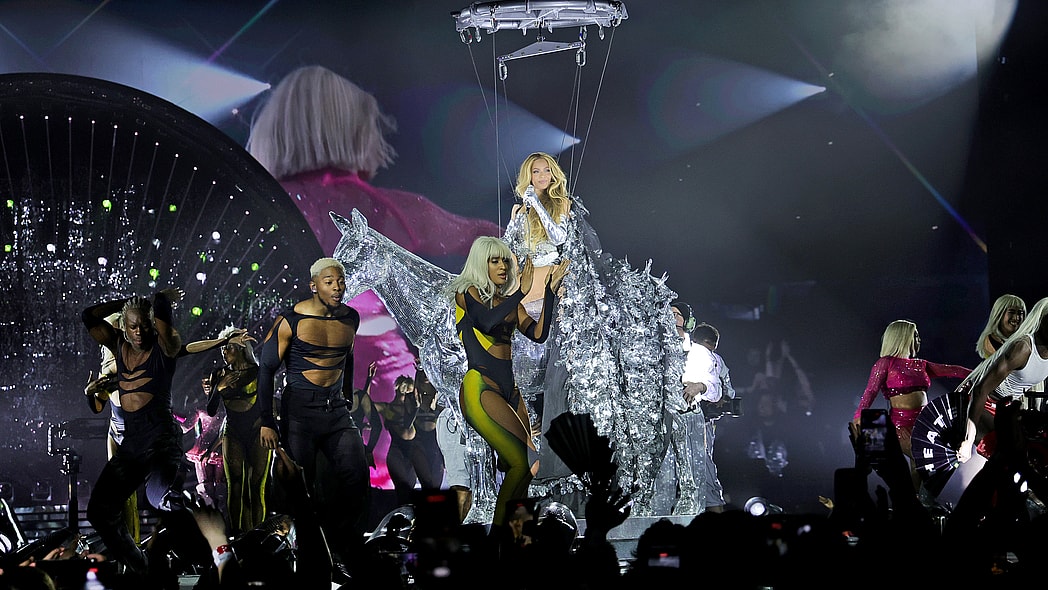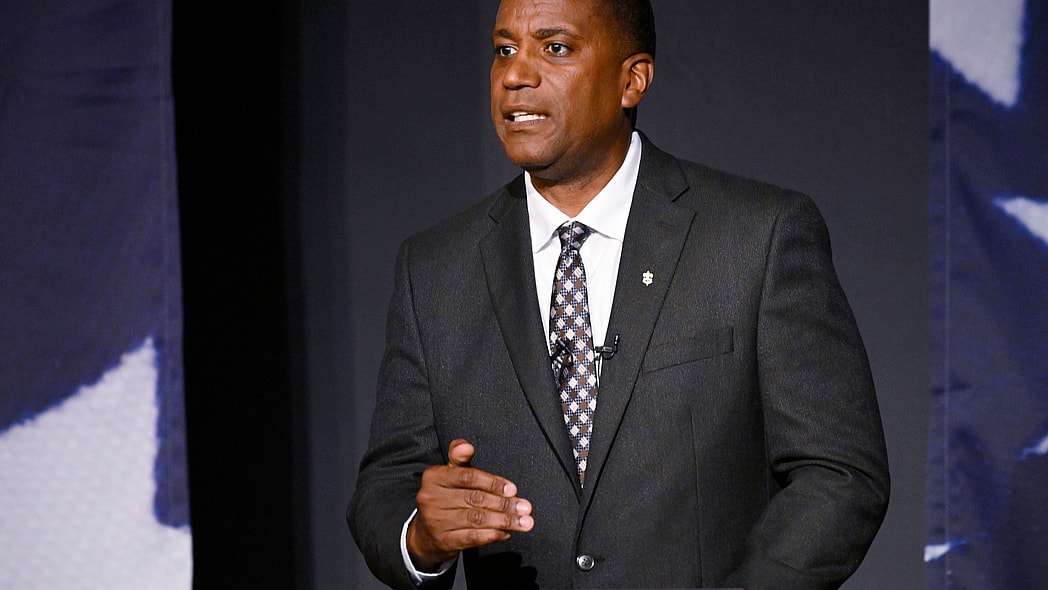Artwork from the personal collection of producer Swizz Beatz, born Kasseem Dean, and his wife, Alicia Keys, is receiving its first major public exhibition at the Brooklyn Museum, in a huge presentation aptly named “Giants.” Blending pop culture with the high arts in a fashion similar to the museum’s recent Spike Lee retrospective, ‘Giants” lures both art connoisseurs and an audience attracted by the spectacle of seeing what hangs on the walls of the celebrity couple’s California cliffside mansion, treating them to a crash course in Black art with a capital “A.” With 98 pieces by 37 artists — including Nick Cave, Amy Sherald, Lorna Simpson, Ernie Barnes, Derrick Adams and Arthur Jafa — “Giants” impresses through sheer breadth and scope alone.
“We want people to see themselves, to feel inspired,” Keys remarks in a video displayed toward the end of the exhibit. “Every person that’s hanging on the walls is just like you and I. We want you to see that you are also a giant: special, incredible, unique.”
The fact that a 40-something African-American couple originally hailing from the hardscrabble environs of the Bronx and Harlem could amass a multimillion-dollar art collection is arguably inspirational enough. But imagining, for example, public school students of color touring the museum and getting exposed to Gordon Parks’ photographs of Muhammad Ali, Malcolm X, and the 1963 March on Washington — or Jamel Shabazz’s portraits of B-boys and B-girls from hip-hop culture’s 1980s golden age; or a colorful canvas by Kehinde Wiley featuring a Renaissance-styled young Black man (“Femme Piquée par un Serpent”) definitely makes clear that the Dean Collection accomplishes Keys’ stated goal.
During the ’90s, Swizz Beatz amassed his fortune largely by crafting hits for rap artists like DMX, Jay-Z and Eve. Though he no doubt owns his share of bling, Bentleys and other ostentatious wealth signifiers, Beatz’s investments in the contemporary artwork of Jean-Michel Basquiat (“Giants” displays the late artist’s “Untitled Portrait of Langston Hughes”), Nina Chanel Abney and others marks a mature shift in the culture’s focus. Among other examples, Jay-Z famously shot his “Picasso Baby” visuals at an art gallery with performance artist Marina Abramović, while Kanye West featured Takashi Murakami’s artwork on two album covers. The New York Times even opined five years ago that “hip-hop’s interest in contemporary art is, by now, somewhat of a cliché.”
Tell that to a troupe of Gen Z high schoolers discovering Meleko Mokgosi for the first time, drawn in by reflections of themselves and the art’s association with the creatives behind hits like “Party Up (Up in Here)” and “Empire State of Mind.” Like the recent retrospective of Jay-Z’s career at the Brooklyn Public Library, “Giants” stands likely to attract a younger audience that might not ordinarily cop museum tickets or be familiar with African artists like Esther Mahlangu and Odili Donald Odita.
The exhibition opens with BMX bikes arranged near the piano from Keys’ “We Are Here” video alongside portraits of the couple by both Kehinde Wiley and Derrick Adams. Technics 1200 turntables and original Herculoid speakers from DJ Kool Herc ensure that hip-hop is heard from. “First Painting,” by a 19-year-old Ernie Barnes (the artist famous for “The Sugar Shack,” the painting from the closing credits of “Good Times”), shows an urban street scene reminiscent of collagist Romare Bearden. Leather loveseats and coffee tables peppered throughout the exhibit add to a sense of lounging in the Deans’ living room.
Recommended Stories
In the 2021 HBO documentary “Black Art: In the Absence of Light,” Swizz Beatz explains that “the Dean Collection started out as this imaginary museum for my kids.” The collection has long since grown to exhibition-worthy status, as “Giants” easily proves. Subjective quibbles about the juxtaposition of its works aside, the exhibit’s paintings, photos, sculptures and artifacts by Black diasporic artists clearly convey Swizz Beatz and Alicia Keys’ belief that, to quote their promotion of “Giants,” “everyone should have the opportunity to enjoy art, cultivate a relationship with creativity and build their own artistic community.” Concrete jungle where dreams are made of indeed.

Miles Marshall Lewis (@MMLunlimited) is an author and Harlem-based cultural critic whose work has appeared in The New York Times Magazine, GQ, Rolling Stone and many other outlets. Lewis is currently finishing a cultural biography of comedian Dave Chappelle, his follow-up to Promise That You Will Sing About Me: The Power and Poetry of Kendrick Lamar.
Never miss a beat: Get our daily stories straight to your inbox with theGrio’s newsletter. Listen to ‘Writing Black‘ with Maiysha Kai.










